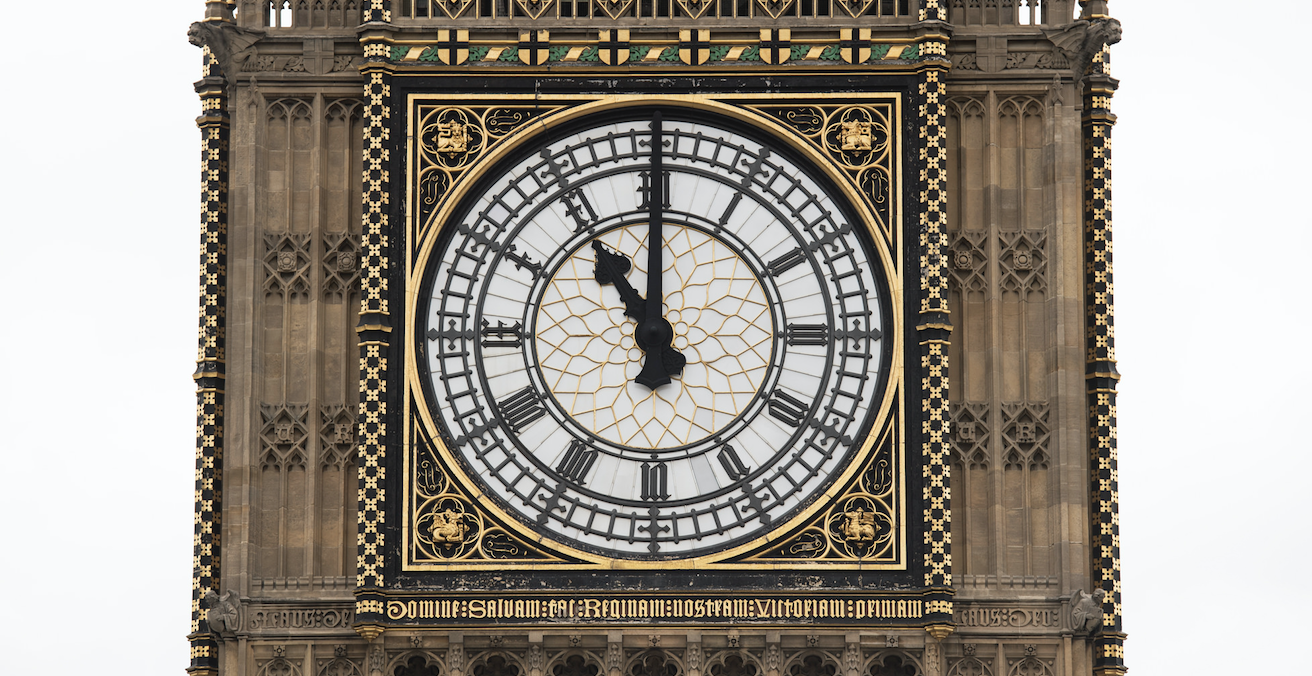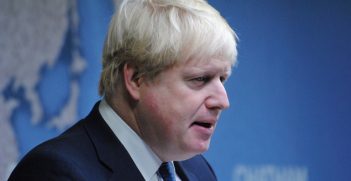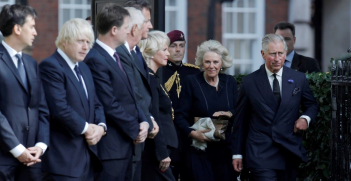Brexit and Theresa May’s "Meaningful Vote"

As the deadline for Brexit looms closer, Theresa May is promising to deliver a meaningful vote in the House of Commons next week. But if she fails to muster a majority, the second referendum that many have been hoping for may finally become a reality.
With less than a month before Britain is scheduled to leave the European Union, Prime Minister Theresa May is promising to put her final Brexit deal to what is termed a “meaningful vote” in the House of Commons on Monday 11 March, and the Conservative government is rallying to force May’s deal through Parliament.
She has twice failed to secure parliamentary approval – in January ignominiously by 230 votes – and twice pleaded for more time. Opposition leader Jeremy Corbyn describes it as “kicking the can down the road.”
The problem, as explained in an earlier article for Australian Outlook, has been the inclusion in the UK withdrawal agreement of a “backstop,” devised as a form of insurance to prevent a hard border between the two countries on the island of Ireland if the UK and EU fail to agree on a trade deal. Conservative Brexiteers believe the backstop would continue to bind the UK too closely to the EU and have insisted on its removal from the agreement.
But now, at the eleventh hour, they have softened their opposition, fearful that if May’s deal does not pass, Brexit will be postponed and may ultimately fail altogether. At the heart of their concern is Jeremy Corbyn’s announcement that the Labour party will support a second referendum. Most opinion polls are indicating that the June 2016 referendum result would be reversed, largely due to support from young people (too young to vote at the last referendum) for remaining in the EU.
The hard-line Conservative Brexiteers are mostly members of the so-called European Research Group (ERG). The ERG, which has the attention of Brexit supporting media, actually neither undertakes research nor has much to do with Europe or Europeans. Its members are right-wing Tory MPs, and its sole purpose is to promote Britain’s exit from the EU.
In practical terms, the ERG is no longer insisting that Theresa May’s withdrawal agreement must be renegotiated – something the European Union refuses to do – but instead insists that a legally binding codicil be added to provide a “clear and unconditional route out of the backstop if trade talks fail.” This could mean “a time limit or a unilateral exit mechanism.”
Sir Geoffrey Cox, Britain’s attorney general, flew to Brussels this week, hopeful of getting such an addition to May’s agreement. But Sir Geoffrey returned empty-handed to London after a frustrating dinner with Michel Barnier, the EU’s chief negotiator, where both sides said publicly no progress had been made. Prime minister May will now fly to Brussels at the weekend in a last-ditch attempt to save her deal. In the unlikely event she succeeds, there is some chance that Mrs May could win the meaningful vote. The codicil would have the support of the Northern Ireland Democratic Unionist Party (DUP) members who keep the Government in power. May can also expect the backing of a handful of pro-Brexit Labour MPs, though their numbers will be countered by a diminishing but significant numbers of Tory rebels, and the 11 MPs who have defected from both main parties to form the Independence Group.
If May’s meaningful vote fails, the prime minister has pledged to put to the House of Commons by 13 March a motion committing her to ask the European Union to delay implementation of Article 50 by two months. If agreed by Brussels, Britain’s departure from the EU will be deferred until the end of May.
Should this happen, the prospect of a second referendum becomes much more likely. As yet, there is no agreement on what questions would be put to the voting public. Logic might dictate that the choice would be support for May’s deal or no Brexit, but at the moment the prime minister is insisting the choice will remain her deal or no deal, which would support the UK crashing out of the EU. The majority of MPs are anxious to avoid such a potentially damaging scenario.
Anecdotal evidence suggests that most Britons are heartily sick of the Brexit debate, but business, industry, trade unions and universities are voicing increasing apprehension. Bookings for that classic annual British escape – the summer holiday abroad – are heavily down, retail sales are falling, major stores are issuing profit warnings and house prices are flat.
The Bank of England announced this week that it is setting up with the European Central Bank a special euro facility to ease the pressure on UK banks in the event of a chaotic Brexit, while BMW told reporters that it was thinking of relocating production of the Mini from Oxford to Austria. Didier Leroy, chairman of Toyota Europe said it would be “extremely difficult” for his company to consider building a new model in Britain if the UK left the EU. Either move would result in the loss of thousands of jobs.
Last weekend brought even more worrying news. The Daily Telegraph published an article by Woody Johnson, the US ambassador to London, saying that if Britain wanted a trade deal with the United States it would need to embrace American farming methods. Johnson wrote that US practices such as “chlorine washing chicken and feeding growth hormones to cattle are the future of farming,” and that the “EU’s traditionalist approach belongs to the past.”
The British are committed to EU food standards, and the May government has already agreed to maintain them. Johnson was quickly slapped down by Michael Gove, the environment secretary, and the president of the National Farmers’ Union. But Johnson’s article came hard on the heels of guidance on a trade deal with Britain published by the Trump administration which insisted on “comprehensive market access” for US agricultural products and the elimination of “unwanted barriers” to food and drink imports.”
The US brief was in stark contrast to the lack of information from the UK International Trade Secretary Liam Fox. On a trip to Sydney with former foreign secretary Boris Johnson two years ago, Fox was volubly optimistic about the number of trade deals he would be able to set up. Now, he has cancelled all meetings with business leaders who are anxious to find out what progress, if any, he has made. Fox’s grandstanding has thrown into sharp relief the reality of what May and many of her ministers have said is the prime goal of Brexit – to allow the UK to pursue and negotiate its own trade deals independently of the EU.
It is now clear that Fox has nothing lined up by way of new deals or arrangements to take the place of those negotiated through Brussels. Negotiations for a deal with the United States look as though they will be contentious and difficult, as well as damaging to Britain’s farm sector, which is currently protected by the European Common Agricultural Policy.
The BBC has reported that the United States is also likely to preclude Britain from negotiating a trade deal with China, as a condition of an agreement with Washington. It is hard to see how London could agree to this, despite its current tricky relations with Beijing. Japan has ruled out replicating its recently concluded trade deal with the EU to a post-Brexit Britain, while India has shown little interest in serious negotiations.
Most worrying for Britain, should it end up with a no-deal Brexit, is Fox’s department’s recent admission to the Financial Times that the government could not guarantee the UK would be covered by “most” of the EU’s global network of trade agreements after Brexit — even if parliament approved Theresa May’s divorce deal with Brussels. In fact, so far only Switzerland and Israel have said they will be prepared to roll over the EU deal to the UK.
Next week should bring more clarity on where Britain is headed, but it would be unwise to pre-judge the parliamentary vote.
Colin Chapman is a writer, broadcaster and public speaker, who specialises in geopolitics, international economics, and global media issues. He is a former president of AIIA NSW and was appointed a fellow of the AIIA in 2017.
This article is published under a Creative Commons License and may be republished with attribution.





